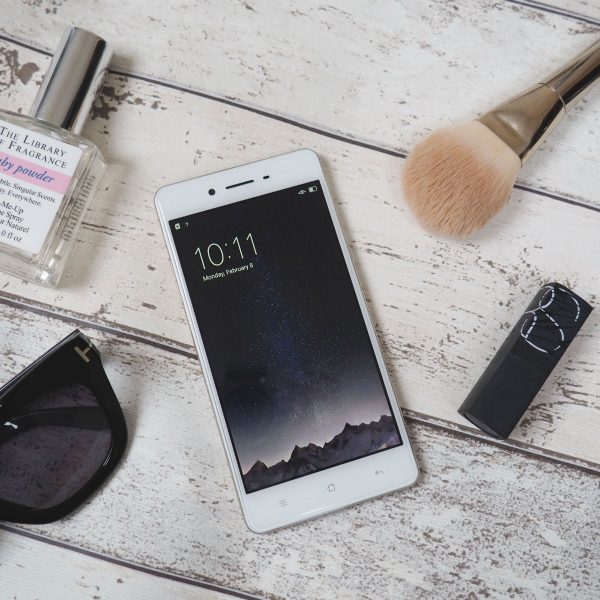So like many other girls and guys this bank holiday, I’ve spent 13 hours of my weekend binge watching Netflix’s latest box-set wonder, 13 Reasons Why.
Based around the undeniably tragic topic of a young girl’s suicide, it documents the reasons behind her untimely passing and is thought to raise awareness of mental health in young people by providing (in graphic detail, I might add) the story behind her heart-breaking decision.
It isn’t based on a true story but of course, for so many people, me included – it does bare a striking resemblance to real life.
I’m sure everyone watching can relate to the bullying, bitchiness and back-stabbing of secondary school and the feelings that these aspects can evoke when you’re already in a very emotional stage of your life.
You’re processing the world around you, hormones are playing havoc and you’re navigating life from childhood to adulthood.
There’s no denying, it’s a pretty difficult period of anyone’s life.
And the series certainly brought back some of those feelings, so deeply in fact, that I bawled my eyes out during the last episode.
I do believe it somewhat captured the complex time of the teen years. It made us remember how cruel things can seem when you’re in the bubble of school. How such tiny things can be blown out of proportion and made us feel like the world had ended. Admittedly, some of those problems were relative to our age and our naivety.
But what no-one tells you, is that those feelings of anxiousness and uncertainty, don’t always melt away with age.
We think they are going to dissipate as you hit the twenties and you become an ‘adult’ once and for all.
We think that we’ll have our lives figured out and be able to brush negativity under the carpet.
And while 13 Reasons Why didn’t delve too deeply into mental health as a whole (which is the one glaringly obvious flaw with the programme), I do think it has provoked a dialogue on social media that we all need to have.
Because when I was 15, social media didn’t exist like it does now. The pressure to look and act a certain way was certainly consistent, but I’m sure it now runs far deeper than just in women’s magazines and films.
I’m 23 and I still quite often feel the pressure and the anxious behaviours that are exacerbated by the social channels that are engrained into our daily lives. So I can’t imagine how a 15-year-old feels.
I do believe we need to really start talking about mental health and about how the things we are exposed to on a daily basis, may or may not be affecting us.
So inspired by 13 Reasons Why, here’s 13 Reasons why we need to talk about mental health and why we need to start, continue and support the dialogue surrounding this on social media.
1. We’re not all perfect
I think the one glaringly obvious thing I struggle with in regards to social media is that it creates a false illusion that we’ve all got our lives totally sorted and that we’re working our way up the success ladder each and everyday, glittering in our glamorous gowns as we go.
We are all guilty of choosing to show the best of ourselves online – and why shouldn’t we? Sometimes I want to share my new selfie with the world or boomerang my Saturday night glass of bubbly. But we’re also all guilty of taking other people’s best selves at face value and comparing ourselves to them. We might follow a sea of glamorous, seemingly perfect ladies and find ourselves wondering ‘why is everyone else living this perfect life, when mine seems to be crumbling’.
But we forget that everyone else has things they are anxious about, things that they’re not sharing, things in their past that are still playing on their minds now. While they’re smiling on board a luxury yacht, they may also be worrying about a relative back home who isn’t well. Or perhaps they’re going through relationship issues. Or maybe they’re suffering low self-esteem. We rarely know anyone else’s full story, other than our own.
So celebrate your story. Celebrate your flaws, your imperfections and your successes. But also celebrate the things you did to get through those darker days. Celebrate it when you picked yourself up, took a deep breath and indulged in a hobby to take your mind off things. Or when you poured your feelings down on paper. Comparison is the thief of joy, especially since no-body is perfect and the grass always seems greener, until you’ve crossed the bridge.
2. Kindness is key
Kindness is totally underrated in the 21st century and this makes me really sad. In a sea of social media, which technically should make us better communicators, the lines between what we think, say and mean are entirely blurred. And similarly, the ‘Keyboard Warrior’ plague has meant that negativity and jealously can incite hateful, nasty and some downright disgusting comments.
We live in an age where it’s deemed part and parcel of being online to include hurtful messages. We’ve become desensitised to spite because apparently it’s easier to say something unpleasant if words don’t tumble from your own mouth.
And yet, surely it’s easier to spread kindness too, right?
How accessible is it to make someone else’s day with a kind message, a compliment or words of appreciation?
Well, very!
We have the world on speed-dial and the ability to be kind. And spreading kindness is one of the most gratifying things ever, because it makes both parties feel so good.
I totally understand that jealously can come out in the wrong way and sometimes we say things we don’t mean, but the next time you see that green eyed monster rise to attention, knock him back with kindness. Discover your inner kindness and see how good it makes you feel.

3. You’re not alone
I think sometimes it’s very easy to wonder why everyone else seems to have their s**t together when I can just about find a pair of matching socks every morning without missing the train (yet again). It can be extremely isolating to feel like you’re the only one going through what you’re going through.
But I can assure you, you’re not.
Mental health issues will affect all of us, in some form, even if not directly, at some point throughout our life. Whether it’s creeping feelings of comparison, self-doubt, depression, anxiety, panic attacks or generally feeling very low, none of us are alone in our struggles. But we’re very good at telling ourselves that we are indeed on our own for the ride. Keeping that stigma attached to mental health, only exaggerates that feeling of isolation and isn’t helpful in the long run for sufferers.
‘Mental’ Health isn’t a dirty word. We need to talk about it.
4. Everyone deserves to have self-worth
One thing about the blogging community that has really impressed me recently is the number of positive campaigns that have launched surrounding the topic of mental health. The L’Oreal and Princes Trust campaign in particular is one that really resonated with me, because it featured a number of stories from celebrities and social personalities alike, each one so different from the last.
No-one has any right to tell you that you’re not worthy or make you feel worthless. In fact, no-one has any power at all to do that to you. But unfortunately, it happens.
5. Actions have consequences
In the digital age, everything is instantaneous. We apparently have very short attention spans, so our digital world caters for that. We get our news bulletins in 140 characters, we scroll through and gratify people via likes within seconds. We flick through content and we often don’t think too deeply about what we’re consuming and how we’re responding, until something forces us to stop and question it.
Because of this quick-fire communication, very rarely to people stop to consider the consequences their actions (or words) may have. And this has unfortunately bred an army of trolls who feed off and disperse negativity (or worse). Even the most innocent looking of creatures, those who you think don’t possess the ability to be hurtful, seem to become empowered by the keyboard.
I recall a time when I got a new boyfriend and admittedly, didn’t spend as much time with my friends as I used to. But in hindsight, I know that’s normal with a new relationship and it wasn’t anything malicious or cruel-natured. I was dividing my time between school, social, family and a relationship.
But I’d previously signed up to an anonymous Q&A website called Formspring, where anyone can post a question to you and request an answer. Months beforehand, I’d set up my profile (as everyone else had) and forgot about it. But about three months into my relationship, the nasty questions started rolling in.
They started fairly tame.
“Everyone’s noticed, you’re now a crap friend since you got that weird boyfriend!”
“Why leave your friends behind for a boy!”
Then, they got really nasty.
“You don’t deserve to have any friends”
“How do you think you’re even worthy of a boyfriend, you’re a disgusting person?”
In my bubble back then, those comments were the end of my world as I saw it. The ‘questions’ had been submitted anonymously but I knew who had posted them.
Not once did those who wrote the remarks stop to think about how those comments might make me feel. What consequences their actions might have had.
I know now they were the result of immaturity, but now that we’re even more so immersed in our online worlds, I worry if I was going through the same thing now, would I have been able to distance myself from the comments and reality?
I’m sure even I have reacted to something without consideration of how a person might feel. But we do all need to be aware of the consequences. We don’t know what another person is going through and what might feel like the last straw for them.
6. Communication is key
Communication is tricky when it comes to mental health, because obviously it’s a sensitive subject and often both the sufferer and the listener, doesn’t know exactly how the conversation is going to go. However mental health, anxiousness and stress can often blur good communication practices and exacerbate the issue, so it’s definitely something we all need to improve on in general in order to help those suffering.
I was chatting to a friend recently, who perfectly described my thoughts on this subject.
“Sometimes we can get angry at our boyfriend or frustrated by our friend. We don’t understand why ourselves and neither do they. Sometimes it can end in tears, but mostly it’s the result of miscommunication.”
As a society, we’re very bad at communicating to one another what we want. Often this is because we don’t know what we want. Do we want that person to comfort us? Do we want them to apologise? Do we want them to go away? Do we want them to shout back?
We’re not sure in the heat of the moment, but they bear the brunt before we can rationalise our feelings and therefore, the feelings are eventually internalised and the consequences of the miscommunication are then the focus point rather than getting to the bottom of how we’re actually feeling.
Take me for example. Quite recently, I was feeling a bit swamped by blogging. Overwhelmed by having to share everything online and document every individual moment. It all got a bit too much but I didn’t communicate this to anyone.
Then, later that day, my boyfriend picked me up and we went for dinner somewhere relatively fancy. Our food arrived and he said something along the lines of:
“Oooh this would make a great picture!”
Well, I flipped. All of my emotions burst into this dialogue and my boyfriend couldn’t understand why I was being so snappy and upset. I’d internalised those feelings of stress and strain and instead they’d manifested into me feeling frustrated by him.

Eventually, his patience meant that we got to the bottom of my feelings. I was frustrated by my workload, I felt like I couldn’t cope and I needed to adjust the work/life balance. But I should have communicated that rather than bottled up my feelings. Obviously it’s not always as easy as that to talk about, but I think getting those feelings out – even if it means writing them down, can help immensely.
7. You can’t smile yourself happy
Although you wouldn’t hobble around on a broken leg or tell someone with a large open bloody wound to ‘pull themselves together‘, unfortunately with mental health – there still seems to be this residing ‘it will get better‘ or ‘man up, you’ve got nothing to worry about‘ stigma surrounding the topic.
You can’t stick a plaster on your head and smile away your depression but because of the lack of education we have in our school system surrounding mental health, none of us really know how to help or ‘cure’ someone.
The invisibility aspect means that we don’t really know quite what’s going on and therefore it’s very frustrating to watch someone in pain, who looks perfectly normal from the outside. I totally get that. It’s difficult to decipher how to appropriately deal with a situation where someone is suffering, but you can’t easily provide a solution.
I think this in itself is even more of a reason to start creating that all important dialogue, reducing that stigma and empathising with sufferers. The cure isn’t always an overnight fix – sometimes its a roller-coaster battle and you’ve got to be in for a bumpy ride.
Things will get better and you will feel better, but like everything, patience and understanding is key – both with yourself and with others.

8. Mental health is just as important as physical
I truly believe that just like Physical Education in schools, we also need Mental Health education. Because we’re made up of our physical selves and our mental selves equally, neither is more important than the other.
While we learn how to kick a ball, keep ourselves fit and are taught about the importance of a healthy diet, no-one ever educates us on how we balance our emotions and care for our minds.
Some might argue this is something we can’t teach. Some people are more conscientious than others, they care more and they are more anxious by nature. Some people will have to seek specialist counselling because of experiences they’ve had in the past.
Well yes, I somewhat agree. But I also think that we ALL need to be equipped with the tools from an early age, for total wellbeing mind, body and soul.
Mental health shouldn’t be discredited because we can’t see it.
If anything, I think mental health is more important than many of the subjects we study in school.
Sure, it’s a harder one to assess via GCSE’s. But it’s so important for a healthy future.
Personally, I think we should have 1-to-1 therapy in schools, mindfulness lessons and a dedicated go-to person to chat all things mental health with.
We should be educated on the normality of feeling worried, anxious and out of your depth at times, rather than feeling isolated for lack of knowledge.
9. We have the power to change
As a society, we control the future of our world. Do we want social media to be a place that breeds hate and fuels bullying?
I think that’s a resounding ‘NO’ from all of us.
Do we have a choice to keep mental health a taboo or create an effective and informative dialogue surrounding it?
Well, yes we do.
We have the choice to use the tools granted to us within the digital age to share, to talk openly and to provide support.
One thing I’d love my events community to provide is a layer of support, both in terms of career tips and general wellbeing. Starting from the #BloggersBall in June, I’ll be introducing support systems from charity partners and hoping to start a dialogue surrounding important issues, as well as the conversation of the wonderful brands and bloggers we have in attendance. It’s just a little thing, but every tiny thing helps!
10. Life is uncertain
One important thing I’ve learned in the past year is that life is full of uncertainties and trying to control them through worry is a waste of energy. It’s been a difficult realisation but one that has lifted a weight from me and in many ways, the dark looming cloud that used to fog my brain, has somewhat lifted.
Don’t get me wrong, sometimes I’m still burdened by it. I start worrying about the future, the uncertainties of my job, what friends who I haven’t seen in awhile might think of me, what might happen if I head into London and my train is delayed. Or worse.
But I’ve learned to embrace those uncertainties and focus my energy on other things. I carry a little book of pocket mindfulness around with me, which I whip out when a worry starts clouding my brain. The little snippets of wisdom remind me of the magnitude of the world and how we as individuals can’t control anything other than our own actions, our own feelings and where and who we dish our energy out to.
Life is uncertain. Sometimes it’s crappy. Sometimes it’s fab and sometimes I want to fast-forward x30.
But I think we all need to remember that we’re doing our best and we’re conquering our own path. No-one else’s.
Whatever happens on that path, will happen. Sometimes it’s about learning to dance in the rain, rather than waiting for the storm to pass.
11. Emotions can’t be kept on a leash
Emotions, at any age, are difficult to deal with and decipher. We don’t understand why one minute we’ll be feeling happy and excited and then the little anxious thoughts start to creep in and overshadow the former.
I’m not sure what the answer is to keeping our negative emotions from overpowering the positive ones, maybe there isn’t an answer.
However I do think we need to acknowledge that in many situations, we can’t always sweep the sadness away or blow the dark cloud off onto the horizon. Your emotional wellbeing is something that takes work and I think education (see a few points above) is key in this respect. We need to be equipped with the tools to talk about and deal with emotions and notice when things are becoming all too much.
12. There is no shame in mental health
Did you know that in the military, PTSD (Post-Traumatic Stress Disorder) has only been formally recognised within the last few years.
Up until then, men and women returning from horrific situations in war-zones, where they were injured, saw friends killed and colleagues blown up, would return to everyday life and somewhat be expected to suppress those thoughts and get on with life as usual.
In the First and Second world wars, this was even worse.
Being ‘affected’ by something mentally was frowned upon and certainly wasn’t socially acknowledged.
Now, though – I do believe things are getting better.
There is no shame in acknowledging that you’re feeling a certain way, or that you need help.
Asking for help is a brave step in the right direction and even if it might take a few tries at focusing your attention in a positive direction, I do think we’re working hard to remove that ‘shameful’ connotation that used to surround mental health.
“Sometimes it’s about learning to dance in the rain, rather than waiting for the storm to pass.”

13. There’s no right or wrong thing to say
I think we avoid talking about mental health because more often than not, it’s difficult to know what to say. Do they want to talk about it? Will I sound like I’m trivialising things if I try to comfort them? Can I even help?
Well, I’m not sure of the answers to any of the above. But I do know that there’s no black and white right or wrong thing to say. Obviously dismissing someone isn’t helpful, nor is telling them ‘not to worry’ but I do think talking more in general about mental health can only be beneficial in the long run – and therefore we shouldn’t avoid broaching the subject altogether.
Our mental health as a society is so important and it shouldn’t be swept under the radar. It shouldn’t be trivialised and it most certainly, shouldn’t be made fun of. We need to begin, continue and not be afraid of the dialogue surrounding it – and one thing is for sure – there are far more reasons than 13 why.
I’d love to hear your thoughts on the above – and what you thought of 13 Reasons Why?
Photography by Alexandra Cameron
* * * *
How to get help:
Samaritans provide a free, confidential contact line for you to discuss anything you’re going through, at any time.
The Princes Trust provide help and support for young people.
Mind provide information and support for those suffering with mental health issues.
Turn2Me offer free online counselling and digital community help.



